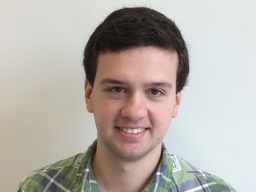PhD Proposal: Daniel Wines
Location
Physics : 401
Date & Time
March 26, 2020, 2:00 pm – 4:00 pm
Description
ADVISOR: Dr. Can Ataca
TITLE: Beyond DFT: Accurately Engineering the Properties of 2D Materials for Energy and Device Applications
ABSTRACT: In recent years two-dimensional (2D) materials have emerged as an important class of nanomaterials for novel applications in optoelectronic and energy related devices. This is due to the unusual electronic and optical properties that arise from their reduced dimensionality. In addition, various methods have been employed to further engineer the properties of 2D materials such as alloying, chemical functionalization and creating heterostructures. In order to guide experimentalists in the process of materials discovery and design, accurate computational methodologies must be used. These quantum simulations can achieve a fundamental understanding of the electronic structure of a given material by approximately solving the many-electron Schrödinger equation. Currently, density functional theory (DFT) is the most widely used method for such due to its relative accuracy and computational efficiency. Despite this advantage, there are significant shortcomings of DFT that can be addressed by using more accurate “next generation” methodologies such as Quantum Monte Carlo (QMC). In this proposal we present a research plan to transition from current methods (DFT) to “next generation” methods (QMC) to engineer the properties of 2D materials with a higher degree of accuracy.
TITLE: Beyond DFT: Accurately Engineering the Properties of 2D Materials for Energy and Device Applications
ABSTRACT: In recent years two-dimensional (2D) materials have emerged as an important class of nanomaterials for novel applications in optoelectronic and energy related devices. This is due to the unusual electronic and optical properties that arise from their reduced dimensionality. In addition, various methods have been employed to further engineer the properties of 2D materials such as alloying, chemical functionalization and creating heterostructures. In order to guide experimentalists in the process of materials discovery and design, accurate computational methodologies must be used. These quantum simulations can achieve a fundamental understanding of the electronic structure of a given material by approximately solving the many-electron Schrödinger equation. Currently, density functional theory (DFT) is the most widely used method for such due to its relative accuracy and computational efficiency. Despite this advantage, there are significant shortcomings of DFT that can be addressed by using more accurate “next generation” methodologies such as Quantum Monte Carlo (QMC). In this proposal we present a research plan to transition from current methods (DFT) to “next generation” methods (QMC) to engineer the properties of 2D materials with a higher degree of accuracy.
